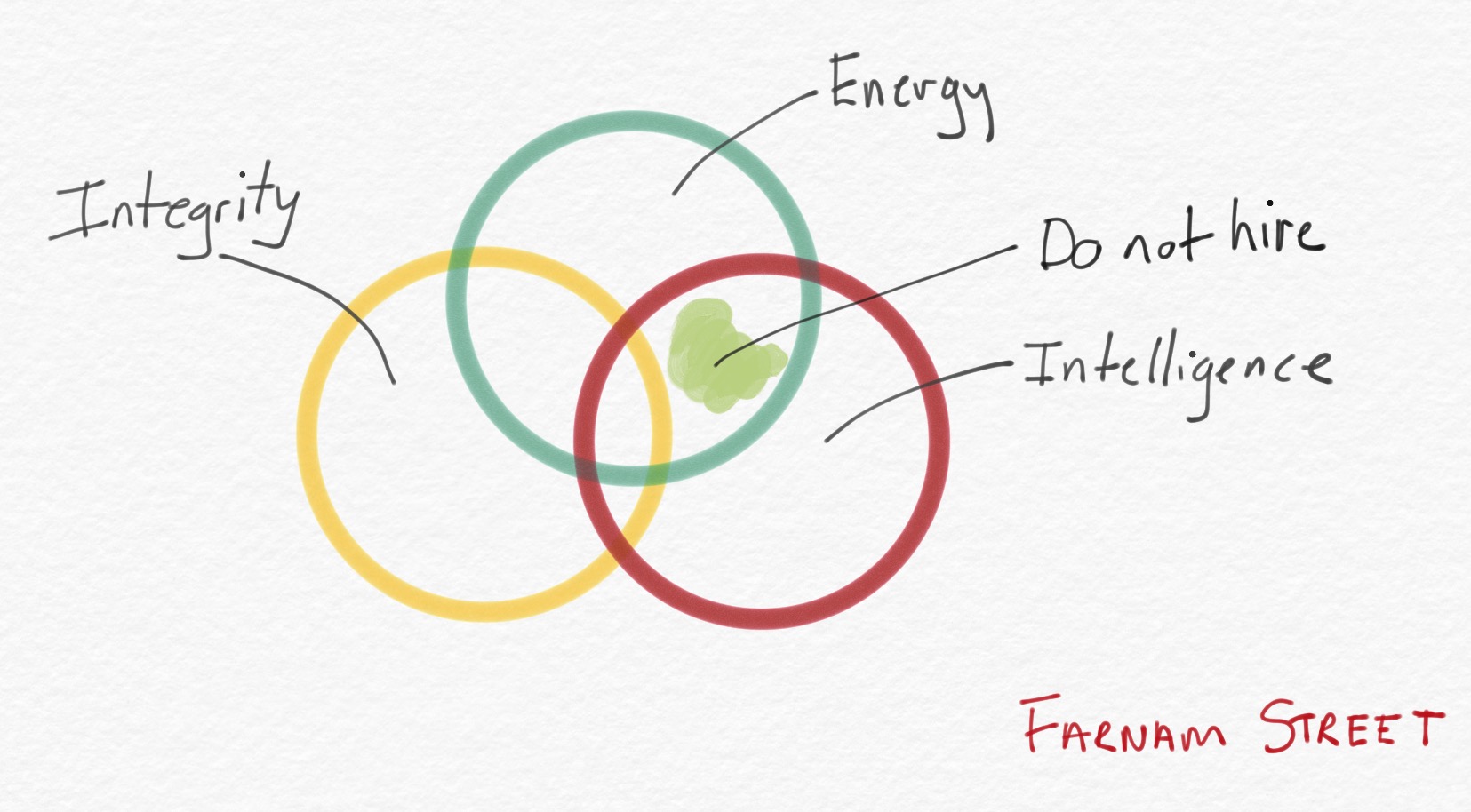
Students often go to visit Warren Buffett. And when they do, he often plays a little game on them.
He asks each student to pick a classmate. Not just any classmate, but the classmate you would choose if you could have 10% of their earnings for the rest of their life. Which classmate would you pick and why?
“Are you going to pick the one with the highest IQ?” asks Buffett. “Are you going to pick the guy who can throw a football the farthest? The one with the highest grades? What qualities will cause you to pick them?”
Then he changes things up again. Who would you think least likely to succeed? Why?
He asks the students to take out a sheet of paper and list the positive attributes on the left and the negative ones on the right.
Inevitably, the most useful qualities have nothing to do with IQ, grades, or family connections. People pick based on generosity, kindness, and integrity.
He then asks the students which of the qualities they are incapable of having and which they are incapable of stopping?
“To Buffett, the answer is none,” writes Michael Eisner in Working Together: Why Great Partnerships Succeed. “These qualities are choices people make. People decide whether or not to be generous, they decide whether or not to take credit for things they didn’t do, whether or not to keep score in life, whether or not to be envious.”
It’s quite simple in the end. Develop qualities from the left and try to stop doing the ones on the right.
“You’re looking for three things, generally, in a person,” says Buffett. “Intelligence, energy, and integrity. And if they don’t have the last one, don’t even bother with the first two. I tell them, ‘Everyone here has the intelligence and energy—you wouldn’t be here otherwise. But the integrity is up to you. You weren’t born with it, you can’t learn it in school.”
Buffett and Munger were fortunate. They were both smart and worked hard to improve that advantage. The integrity, however, they chose.
“You decide to be dishonest, stingy, uncharitable, egotistical, all the things people don’t like in other people,” argues Warren. “They are all choices. Some people think there’s a limited little pot of admiration to go around, and anything the other guy takes out of the pot, there’s less left for you. But it’s just the opposite.”
